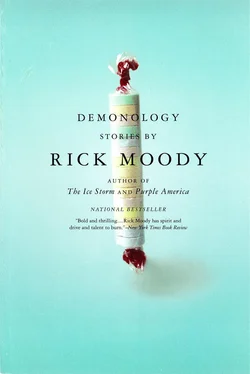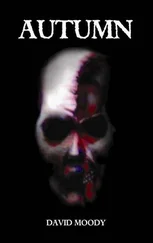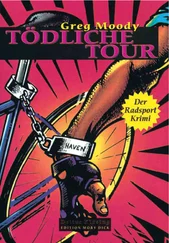Alex was actually waving a spicy wing when she offered her life-altering opinion that I was too smart to be working for Hot Bird, especially if I was going to brutalize little kids with the creepy facts of the hereafter. What I should do, Alex said, was get into something positive instead. She happened to know a girl — it was her cousin, Glenda — who managed a business over in Albany, the Mansion on the Hill, a big area employer, and why didn’t I call Glenda and use Alex’s name, and maybe they would have something in accounting or valet parking or flower delivery, you know, some job that had as little public contact as possible, something that paid better than minimum wage, because minimum wage, Alex said, wasn’t enough for a guy of twenty-nine. After these remonstrances she actually hauled me over to the pay phone at Hot Bird (people are so generous sometimes), while my barely alert boss Antonio slumbered at the register with no idea what was going on, without a clue that he was about to lose his most conscientious chicken impersonator. All because I couldn’t stop myself from talking about death.
Alex dialed up the Mansion on the Hill (while Zack, at the table, donned my mask all over again), penetrating deep into the switchboard by virtue of her relation to a Mansion on the Hill management-level employee, and was soon actually talking to her cousin: Glenda, I got a friend here who’s going through some rough stuff in his family, if you know what I mean, yeah, down on his luck in the job department too, but he’s a nice bright guy anyhow. I pretty much wanted to smooch him throughout confirmation classes, and he went to … Hey, where did you go to school again? Went to SUNY and has a degree in business administration, knows a lot about product positioning or whatever, I don’t know, new housing starts, yada yada yada, and I think you really ought to …
Glenda’s sigh was audible from several feet away, I swear, through the perfect medium of digital telecommunications, but you can’t blame Glenda for that. People protect themselves from bad luck, right? Still, Alex wouldn’t let her cousin refuse, wouldn’t hear of it, You absolutely gotta meet him, Glenda, he’s a doll, he’s a dream boat, and Glenda gave in, and that’s the end of this part of the story, about how I happened to end up working out on Wolf Road at the capital region’s finest wedding- and party-planning business. Except that before the Hot Bird recedes into the mists of time, I should report to you that I swiped the Chicken Mask, Sis. They had three or four of them. You’d be surprised how easy it is to come by a Chicken Mask.
Politically, here’s what was happening in the front office of my new employer: Denise Gulch, the Mansion on the Hill staff writer, had left her husband and her kids and her steady job, because of a wedding, because of the language of the vows — that souffle of exaggerated language — vows which, for quality-control purposes, were being broadcast over a discreet speaker in the executive suite. Denise was so moved by a recitation of Paul Stookey’s “Wedding Song”taking place during the course of the Neuhaus ceremony (“Whenever two or more of you / Are gathered in His name, / There is love, / There is love… “) that she slipped into the Rip Van Winkle Room disguised as a latecomer. Immediately, in the electrifying atmosphere of matrimony, she began trying to seduce one of the ushers (Nicky Weir, a part-time Mansion employee who was acquainted with the groom). I figure this flirtation had been taking place for some time, but that’s not what everyone told me. What I heard was that seconds after meeting one another — the bride hadn’t even recessed yet — Denise and Nicky were secreted in a nearby broom closet, while the office phones bounced to voice mail, and were peeling back the layers of our Mansion dress code, until, at day’s end, scantily clad and intoxicated by rhetoric and desire, they stole a limousine and left town without collecting severance. Denise was even fully vested in the pension plan.
All this could only happen at a place called the Mansion on the Hill, a place of fluffy endings: the right candidate for the job walks through the door at the eleventh hour, the check clears that didn’t exist minutes before, government agencies agree to waive mountains of red tape, the sky clears, the snow ends, and stony women like Denise Gulch succumb to torrents of generosity, throwing half-dollars to children as they embark on new lives.
The real reason I got the job is that they were short-handed, and because Alex’s cousin, my new boss, was a little difficult. But things were starting to look up anyway. If Glenda’s personal demeanor at the interview wasn’t exactly warm (she took a personal call in the middle that lasted twenty-eight minutes, and later she asked me, while reapplying lip liner, if I wore cologne) at least she was willing to hire me — as long as I agreed to renounce any personal grooming habits that inclined in the direction of Old Spice, Hai Karate or CK1. I would have spit-polished her pumps just to have my own desk (on which I put a yellowed picture of you when you were a kid, holding up the bass that you caught fly-fishing and also a picture of the four of us: Mom and Dad and you and me) and a Rolodex and unlimited access to stamps, mailing bags and paper clips.
Let me take a moment to describe our core business at the Mansion on the Hill. We were in the business of helping people celebrate the best days of their lives. We were in the business of spreading joy, by any means necessary. We were in the business of paring away the calluses of woe and grief to reveal the bright light of commitment. We were in the business of producing flawless memories. We had seven auditoriums, or marriage suites, as we liked to call them, each with a slightly different flavor and decorating vocabulary. For example, there was the Chestnut Suite, the least expensive of our rental suites, which had lightweight aluminum folding chairs (with polyurethane padding) and a very basic altar table, which had the unfortunate pink and lavender floral wallpaper and which seated about 125 comfortably; then there was the Hudson Suite, which had some teak in it and a lot of paneling and a classic iron altar table and some rather large standing tables at the rear, and the dining stations in Hudson were clothed all in vinyl, instead of the paper coverings that they used in Chestnut (the basic decorating scheme there in the Hudson Suite was meant to suggest the sea vessels that once sailed through our municipal port); then there was the Rip Van Winkle Room, with its abundance of draperies, its silk curtains, its matching maroon settings of inexpensive linen, and the Adirondack Suite, the Ticonderoga Room, the Valentine Room (a sort of giant powder puff), and of course the Niagara Hall, which was grand and reserved, with its separate kitchen and its enormous fireplace and white-gloved staff, for the sons and daughters of those Victorians of Saratoga County who came upstate for the summer during the racing season, the children of contemporary robber barons, the children whose noses were always straight and whose luck was always good.
We had our own on-site boutique for wedding gowns and tuxedo rentals and fittings — hell, we’d even clean and store your garments for you while you were away on your honeymoon — and we had a travel agency who subcontracted for us, as we also had wedding consultants, jewelers, videogra phers, still photographers (both the arty ones who specialized in photos of your toenail polish on the day of the wedding and the conventional photographers who barked directions at the assembled family far into the night), nannies, priests, ministers, shamans, polarity therapists, a really maniacal florist called Bruce, a wide array of deejays — guys and gals equipped to spin Christian-only selections, Tex-Mex, music from Hindi films and the occasional death-metal wedding medley — and we could get actual musicians, if you preferred. We’d even had Dick Roseman’s combo, The Sons of Liberty, do a medley of “My Funny Valentine,”“In-a-Gadda-Da-Vida,”“I Will Always Love You”and “Smells Like Teen Spirit,”without a rest between selections. (It was gratifying for me to watch the old folks shake it up to contemporary numbers.) We had a three-story, fifteen-hundred-slip parking facility on site, convenient access to I-87, I-90 and the Taconic, and a staff of 175 full- and part-time employees on twenty-four-hour call. We had everything from publicists to dicers of crudites to public orators (need a brush-up for that toast?) — all for the purpose of making your wedding the high watermark of your American life. We had done up to fifteen weddings in a single day (it was a Saturday in February, 1991, during the Gulf War) and, since the Mansion on the Hill first threw open its door for a gala double wedding (the Gifford twins, from Balston Spa, who married Shaun and Maurice Wick-ett) in June of 1987, we had performed, up to the time of my first day there, 1,963 weddings, many of them memorable, life-affirming, even spectacular ceremonies. We had never had an incidence of serious violence.
Читать дальше












